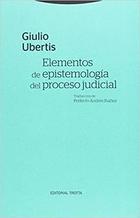
The gnoseological dimension of the instruments used by the judge and the modalities of access to the solution of the controversy have long interested not only magistrates, lawyers and jurists in general, but also the cultivators of philosophy, logic and psychology. . So much so that the interdisciplinary attention given to the methods followed in this regard is becoming more evident, as well as the concern for the validity and quality of the knowledge obtained through judicial judgment, integrating the traditional technical-legal approach with one's own perspective of the contemporary philosophical-scientific debate.
In this work, the process is characterized as a place of verbalization of experience, and the semantic conception of truth recognized as the most appropriate to maintain the epistemological neutrality within it, in the reconstruction of the controversial fact, whose...read more







